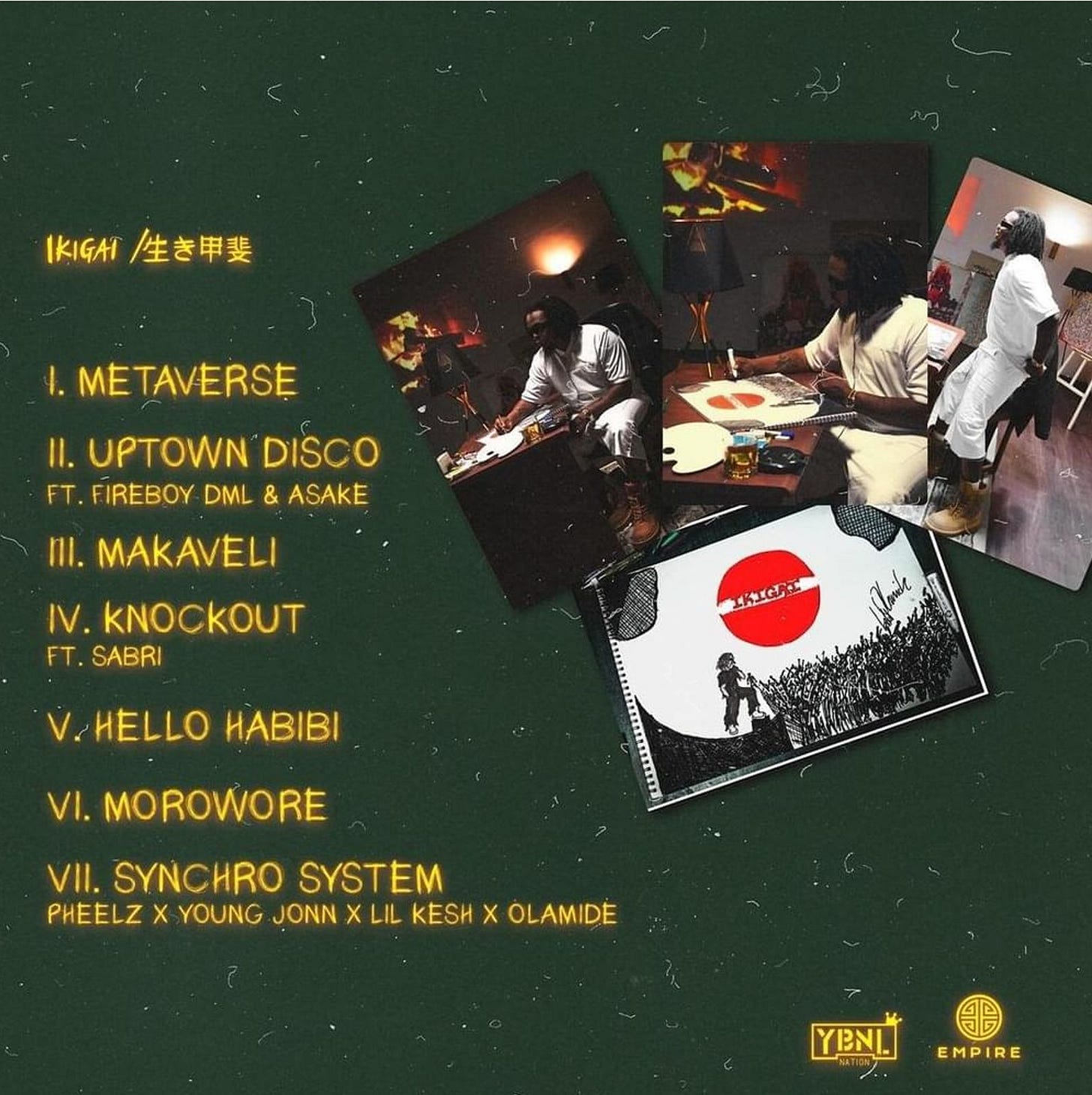IKIGAI (生き甲斐, lit. 'a reason for being')
Abraham Maslow has nothing on Olamide. He has risen through the hierarchy of Maslow’s needs and now sits at the pyramid tip. What’s next for Olamide: Zen, I suppose. Perhaps this explains why he has chosen to call his latest 7-track long record Ikigai, a Japanese concept referring to what gives a person a sense of purpose.
The beauty of music and the arts is that the artist’s personality and biography leak into their works. There have been hints about Olamide’s struggle with grief following the successive loss of his parents, particularly on Carpe Diem’s ‘Triumphant’. His music’s descent into decadence is documented in the last three albums. It has luxuriated in the risqué, holding desperately to the notion of escapism in a way similar to Davido’s Timeless.
Igbo. Shayo. Ashewo.
The all-time tripartite condiments for the Nigerian youth’s escapism have acquired the cloak of luxury. Igbo has become Canadian Loud; Shayo is premium quality liquor (aged single malt whiskey is my preference); Baddie is the new Ashawo, surgically enhanced with a vixen demeanour that is more Pavlovian than put-on.
Afrobeats is energised by how it recreates wonder around these obsessions. The music continues to animate neon-signed, strobe-lights-fitted dancehalls, sometimes with new dance styles that could raise one’s social currency from the dead.
Olamide must be proud of his accomplishments. A standout member of his Afrobeats cohort, he has taken the lessons from the Id Cabasa-led Coded Tunes Academy and established his own called Yahoo Boy No Laptop label after his breakout sophomore record. Stars like Adekunle Gold, Lil Kesh, and Chinko Ekun have rotated through his stables. Fireboy DML and Asake are currently carrying the YBNL torch burning with vim. Pheelz and Young Jonn, Olamide’s former go-to producers, may still need to be signed to YBNL, but they will continue collaborating.
Unlike recently cancelled label executive Puff Daddy, Olamide is not interested in hugging the spotlight. This may have influenced the quiet release of his album. Of course, the response has been overwhelming. The album tops the charts, and accompanying visualisers featuring Olamide rapping and sketching are racking up good numbers on YouTube.
Semz, humorously called Semz Bond, is the standout producer of the roster. The featured artistes are the usual suspects, except on ‘Knockout’ featuring Netherlands indie R&B rising star of North Africa heritage, Sabri.
Olamide loves to sing, and he lets it rip on Ikigai. It is lively music. He is his humorous self. He tracks his preoccupations. The working class of Ladilak Bariga provides musical influences from the Arabic-inflected Islamic chants to the percussion-heavy jam sessions of the Aladura Church. The boisterous comedy and neologism of Yoruba Nollywood. All the fodder from his childhood he was given merges with the catalogue of luxury materials he can now purchase.
He approaches Thanksgiving on the string-enhanced ‘Mowowore,’ an interpolation of Paul Play Dairo’s classic song. The album’s standout is the Phyno-produced Japanese-influenced ‘Synchro System,’ which name-checks Sunny Ade’s 80s era of moderning juju with synthesisers.
Japanese influences are not new to Nigerian music. Fuji music was named after Mount Fuji by Alhaji Agba. Sunny Ade played in Japan in 1984. So, there you have it. It is time to learn how to pronounce Ikigai properly. Check Gracey Mae’s Twitter and hear it in Olamide’s voice.






A perfect morsel of a review! Thank you, off to listening 🎶